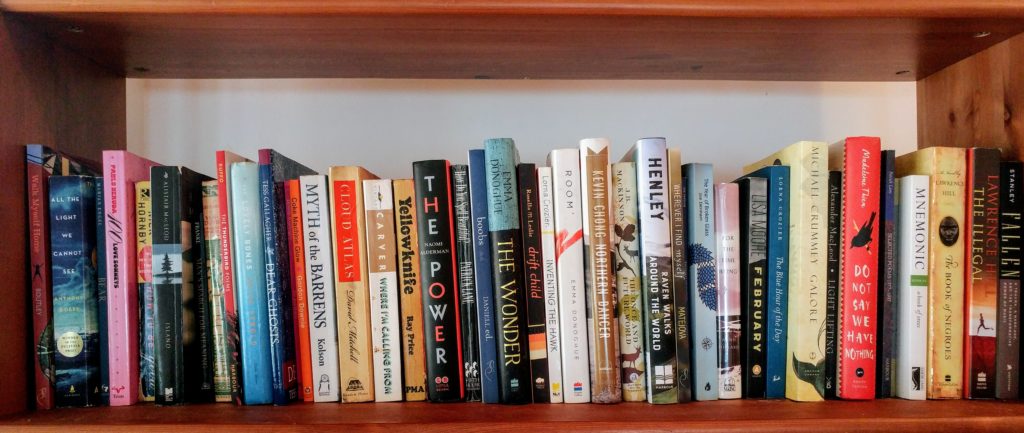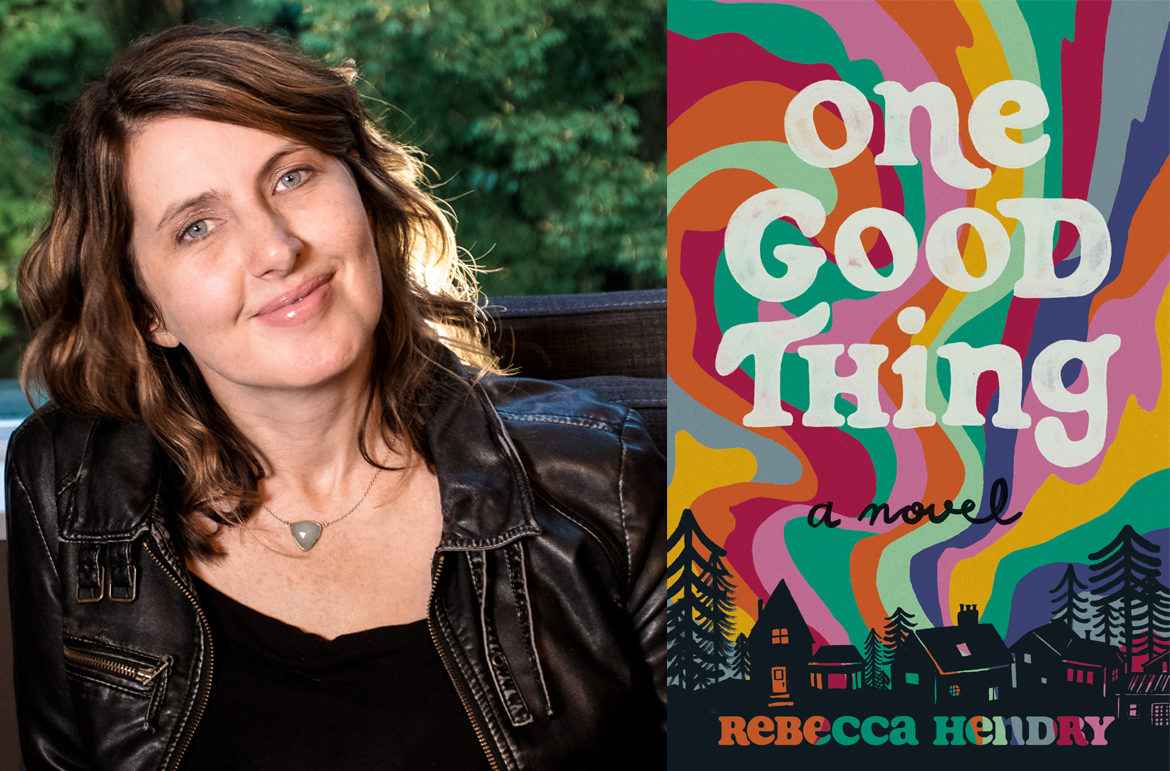Born in Ottawa to a hippie mother and a poet father, Rebecca Hendry moved to a new city or town across Canada every year until she was eleven, when she settled on the Sunshine Coast in BC. Her second novel, One Good Thing (Brindle & Glass) is set in Yellowknife’s historic Old Town in the 70s and explores both abandonment and belonging in the life of one young woman.
There’s rarely one defining moment, but what was the impetus for One Good Thing?
Most of my writing projects start with a mental image of something I can’t shake. Before I started writing One Good Thing I was carrying around an image of a young girl standing on a frozen, desolate lake feeling alone and scared. I wanted to know who she was and why she felt that way, so I started writing to find out.
You moved all over Canada as a young child. Why did you decide to set your novel in Yellowknife in the 70s?
I did move around a lot! I lived in about fifteen different homes across Canada by the time I was a teenager. I felt very connected to the North as a child and when I set out to write this book I was curious about exploring why that was. We can’t always put our finger on why certain places, or even people, resonate with us more than others, and I think that’s what I was trying to discover in this book.
In many ways, One Good Thing is a love letter to Yellowknife, and to Old Town in particular. It was such an interesting time. Young people were coming to the North from all over the world and living in little shacks in forty-below winters while they worked staking claims in the bush or surveying—my mom and my aunt even sold fresh fish out of the back of a 50s panel van one summer.
What are the key qualities you want in a book—as a writer or a reader?
Depth of character is the most important thing to me in a novel. It could be mystery, literary fiction, science fiction—any genre, really, as long as the characters feel real and have something to show me about myself or about what makes humans tick and what connects us all.
What is the hardest scene you have ever written and why was it difficult?
That would have to be writing from Daniel’s perspective in my first novel, Grace River. Originally the book was only going to be told from my main character, Jessie’s, point of view. She was a young mother and wife whose husband, Daniel, was cheating on her. I really disliked Daniel, but I decided I needed to try to figure out where he was coming from, so I wrote the scene where he is unfaithful to her from his perspective. It was a very interesting exercise and I ended up writing the novel from four points of view instead of one. I gained a lot of understanding and even compassion for a character I had seen as unkind and immature.
Is there a personality, point of view, or character traits (etc.) you think you could never write, and why?
I don’t think so, no. One of the things I love about writing is trying to put myself in someone else’s shoes and walk around in them for a while. That said, I do get to pick and choose what kind of shoes they are. There are many kinds I wouldn’t necessarily want to try on.
What book do you think is underappreciated?
Having worked as an editor and a marketing coordinator for small BC presses, as well as my current job editing for a self-publishing company and private clients, I would say there are many underappreciated books out there! I really encourage people to read more small-press and independent authors, otherwise, they will be missing out on some incredible books. Two books I feel didn’t get the level of attention they deserved are Joe Denham’s The Year of Broken Glass (Nightwood Editions, 2011), which is one of my all-time favourite BC novels, and Sheila Peters’ The Taste of Ashes (Caitlin Press, 2012), a beautiful and heartbreaking book.
If money weren’t an issue, where would you travel or who would you visit?
Oh, everywhere! One of my favourite daydreams is winning the lottery and hitting the road full-time. Iceland. Denmark. Sweden. Costa Rica. Spain. France. Haida Gwaii. Bali. Scotland. Pretty much all the places!
Where do you like to take a book and read?
In my hammock on my sunny porch with my cat in my lap. Also on public transportation, partly so I look busy so people don’t try to talk to me (introvert confession).
Show us your #Shelfie!

What do you surround yourself with when you write?
As little as possible. The less distraction I have when I write, the better. For me, writing fiction is like a form of listening. I have to tune into a certain frequency in order to do it, and I can’t hear it properly if there is too much going on around me. If I’m writing I’m usually alone wrapped in my fuzzy blue blanket curled up with a cup of green tea.
What are you reading? / Recommend a BC book for us
I am currently reading the fabulous A One-Handed Novel by Kim Clark (Caitlin Press). She is an awesome, funny and gutsy BC writer who I so admire.
Rebecca Hendry‘s first novel, Grace River, was published by Brindle and Glass in 2009, and her short fiction has appeared in the Dalhousie Review, Wascana Review, Event, Windsor Review, and other literary journals. She lives in Gibsons, BC, with her two children. One Good Thing (Brindle & Glass) publishes in Spring 2018.
Rebecca Hendry will be having a joint book launch with former Sunshine Coaster, Kim Clark, on Saturday, May 5 at the Sunshine Coast Arts Council in Sechelt.
http://www.readlocalbc.ca/event/one-good-thing-a-one-handed-novel-launch/


One reply on “Rebecca Hendry on depth of character and underappreciated locales”
Hi do you know that you can increase your conversion ratio couple of times and earn extra cash every
day. There is incredible landing pages tool. It is very easy even for noobs,
if you are interested simply search in gooogle: pandatsor’s tools